RESOURCES

Foundation for Economic Education
Link: fee.org
John attended a FEE study program in his younger years and was personally taught by Leonard Read, the founder of FEE, at their beautiful campus on Irvington-On-Hudson. One of John’s prized possessions is a book Mr. Reed gave to him personally, “Human Action” by Ludwig Von Mises. You will find this organization to be an outstanding go-to resource for economic freedom.

Ron Paul
Link: ronpaulinstitute.org
Ron and his son, U.S. Senator Rand Paul, are both reliable sources who I have known personally for many years. They are men of and for the people, and have worked tirelessly for decades for the preservation of Liberty.

Zero Hedge
Link: zerohedge.com
Zero Hedge is an alternative news source. While I don’t agree with all that is said here, this is a different source of news that you won’t typically find.


Pat Buchanan
Link: buchanan.org/blog
I’ve known Pat personally for over three decades and would recommend any (and all) of his books. The problem with Pat is that he is about 10 years ahead of himself…so if you read his “old” books you will be amazed how “on target” he is!

Leadership Institute
Link: leadershipinstitute.org
Morton Blackwell and the Leadership Institute has been training conservatives on how to win elections and also equipping them with numerous books and thinkers of that shaped the modern American conservative movement.

The Federalist Society
Link: fedsoc.org

Thomas Sowell
Link: leadershipinstitute.org
Thomas Sowell is an American economist and social theorist who is currently a Senior Fellow at the Hoover Institution, Stanford University. He writes from a libertarian conservative perspective, advocating supply-side economics. Sowell has written more than thirty books.

The Imaginative Conservative
Link: theimaginativeconservative.org

The Roots of American Order
Author: Russell Kirk
In this now classic work, Russell Kirk describes the beliefs and institutions that have nurtured the American soul and commonwealth of the United States.

Last Call for Liberty: How America’s Genius for Freedom Has Become Its Greatest Threat
Author: Os Guinness
“Conflicts, hostility, and incivility now threaten to tear the country apart. Competing visions have led to a dangerous moment of cultural self-destruction. This is no longer politics as usual, but an era of political warfare where our enemies are not foreign adversaries, but our fellow citizens.”
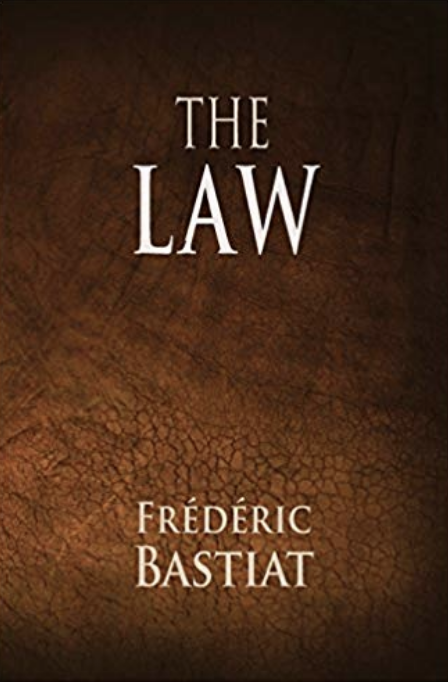
The Law
Author: Frederic Bastiat
The Law was originally published as a pamphlet in 1850 by Frederic Bastiat (1801-1850). Bastiat wrote most of his work in the few years before and after the French Revolution of 1848. The Law is considered a classic and his ideas are still relevant today. The essay was published in French in 1850. This piece was published in English as part of Essays on Political Economy
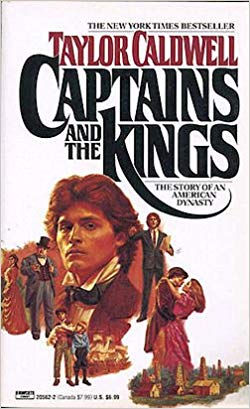
Captains and the Kings
Author: Taylor Caldwell
One of my favorite books of all time: “Captains and the Kings” by one of my favorite fiction authors of all time, Taylor Caldwell.
An informed electorate, who would elect only just men no matter their financial power or lack of it, was an impossible dream. Mankind adores its betrayers, and murders its saviors.
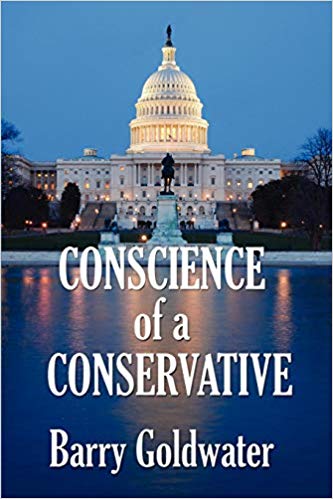
Conscience of a Conservative
Author: Barry Goldwater
The Conscience of a Conservative reignited the American conservative movement and made Barry Goldwater a political star. It influenced countless conservatives in the United States, and helped lay the foundation for the Reagan Revolution in 1980. It covers topics such as education, labor unions and policies, civil rights, agricultural policy and farm subsidies, social welfare programs, and income taxation. This significant book lays out the conservative position both politically and economically that would come to dominate the Conservative Movement in American.
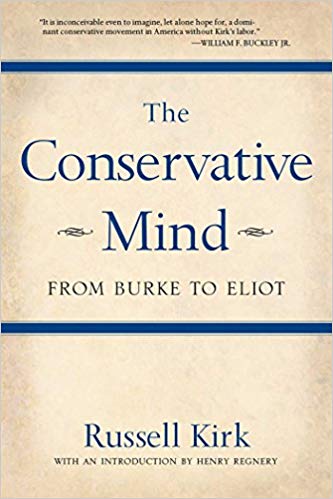
The Conservative Mind
Author: Russell Kirk
“A profound critique of contemporary mass society, and a vivid and poetic image – not a program, an image – of how that society might better itself. [ The Conservative Mind ] is, in important respects, the twentieth century’s own version of the Reflections on the Revolution in France… [Kirk] was an artist, a vsionary, almost a prophet.” – DAVID FRUM, author of Dead Right
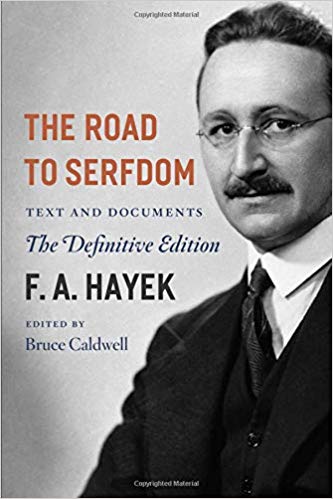
The Road to Serfdom
Author: F. A. Hayek
An unimpeachable classic work in political philosophy, intellectual and cultural history, and economics, The Road to Serfdom has inspired and infuriated politicians, scholars, and general readers for half a century. Originally published in 1944—when Eleanor Roosevelt supported the efforts of Stalin, and Albert Einstein subscribed lock, stock, and barrel to the socialist program—The Road to Serfdom was seen as heretical for its passionate warning against the dangers of state control over the means of production. For F. A. Hayek, the collectivist idea of empowering government with increasing economic control would lead not to a utopia but to the horrors of Nazi Germany and Fascist Italy.
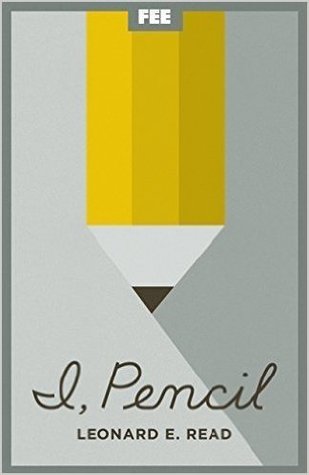
I, Pencil – My Family Tree As Told to Leonard E. Read
Author: Leonard E. Read
“I, Pencil” is written in the first person from the point of view of a pencil. The pencil details the complexity of its own creation, listing its components and the numerous people involved, down to the sweeper in the factory and the lighthouse keeper guiding the shipment into port.
